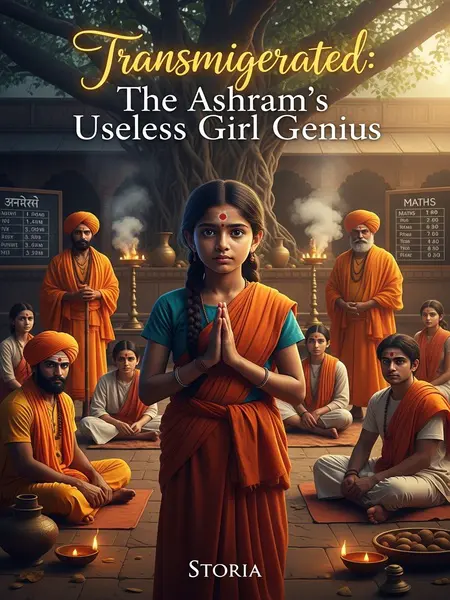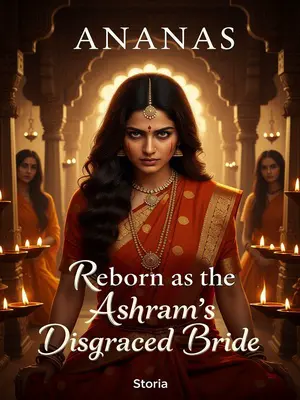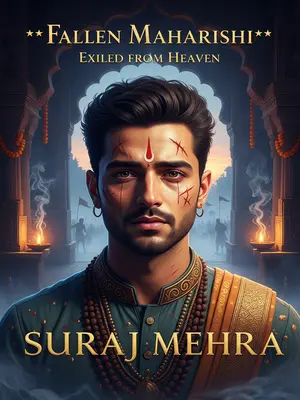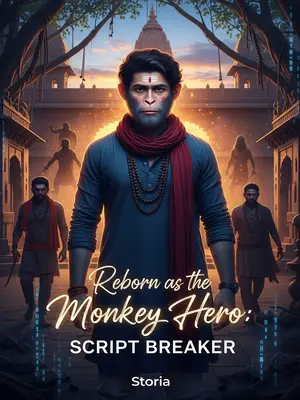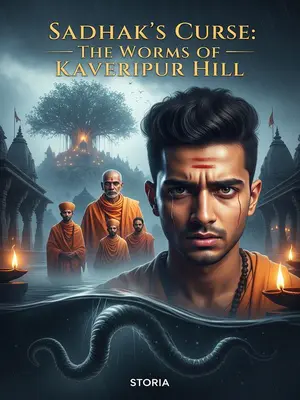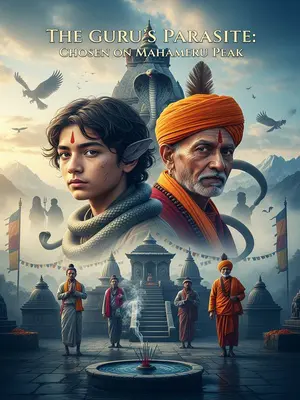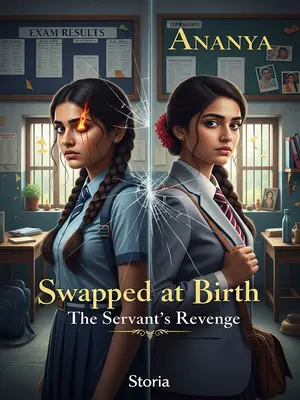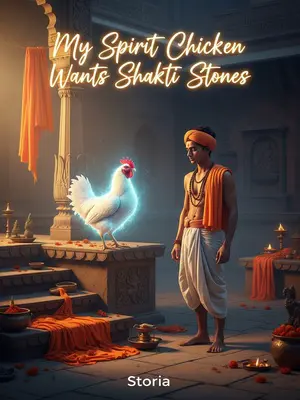Chapter 2: The Tournament Begins
2.
The first to represent our ashram was eldest senior bhaiya. Ajay bhaiya, over thirty, honest and steady, had spent more than twenty years under Guruji’s guidance. He was the type who always touched Guruji’s feet and saved the last laddoo for the youngest among us.
His opponent: a Shantipath Ashram youth, dressed in crisp white kurta, a neat sandalwood tilak on his forehead—clearly the sort who’d grown up reciting shlokas at dawn. Guruji’s face turned grim, his fingers moving over his rudraksha mala. He murmured, “Yeh toh Aryan hai...yeh toh badi mushkil hai.”
“Sigh, I didn’t expect we’d meet Aryan in the first round. Looks like our luck’s run out this year,” Guruji sighed. Even the birds on the neem tree seemed to hush, as if respecting our coming defeat.
The two exchanged respectful namastes. Ajay bhaiya glanced at Guruji for reassurance, then steadied himself, feet planted firm like a tree in a storm. I clutched my notebook so tightly my knuckles whitened, glancing at Guruji’s face, seeking some hope.
My heart thudded. Would I finally see legendary spiritual moves? I remembered stories of sages summoning lightning or bending rivers with chants. My expectations soared, breath held tight in my chest.
Ajay bhaiya closed his eyes, muttered under his breath like reciting Gayatri mantra, then shouted: “What is 2×3?”
A gust of wind whipped up, the question itself shimmering in the air like a vayu-tatva mantra. Dust swirled, dupattas fluttered, and someone whispered, ‘Iska toh jawaab bhi nahi aata sabko!’
Aryan stood calm, smiling like the class topper who knows every answer. “Six.”
Instantly, the force vanished. A ripple went through the crowd—some aunties did a quick namaste, as if Aryan’s maths had warded off evil.
The crowd burst into cheers and applause. Young disciples clapped and whooped, while the serious gurus nodded. I stood dumbfounded, notebook forgotten at my side. Was this really the stuff of legends?
Wait, what is this? I rubbed my eyes, convinced I’d misheard. But the question was as simple as it sounded. Everyone else took it with deadly seriousness.
Primary school arithmetic problems? It was as if the world’s fate rested on a multiplication table. I half-expected someone to fetch a slate and chalk.
3.
“At such a young age, to have mastered multiplication and broken through to third standard—truly a once-in-a-century genius!” a plump Guru with a handlebar moustache crowed. “Bilkul sahi! Hamare zamane mein toh teesre standard tak kaun pahunchta tha!” The crowd echoed with awe.
I looked around, half-expecting laughter, but none came. It was like being the only one in the cinema who found the hero’s dialogue over the top.
Haven’t you all learned the tables? I muttered, “Arrey, yeh toh chhota bacha bhi kar leta hai!” The crowd’s amazement only grew.
Ajay bhaiya, sweating now, called out with new determination: “3×4, 5×8, 7×9?”
Three wind blades sliced through the air, each one a visible question. The crowd gasped, shuffling back as if the sums might hit them. Aryan replied without blinking: “Twelve, forty, sixty-three.”
Each wind blade vanished. A shiver ran through the assembly, as if Aryan’s answers had banished evil spirits. Someone in the crowd even did a quick namaste, as if Aryan’s maths had warded off evil.
Ajay bhaiya panted, sweat darkening his kurta. Aryan calmly stepped forward, tracing mudras in the air, movements precise as a Kathak dancer. The air crackled with tension.
“What is 4×8÷2−9?”
A sword aura slashed at Ajay bhaiya. Elders leaned in, eyes sharp behind spectacles. Ajay bhaiya’s lips moved, but panic clouded his mind. His arms rose, but the force broke through. He crashed to the ground, kurta torn, streaked with red. Guruji’s jaw tightened; the crowd murmured, some with sympathy, others just relieved it wasn’t them.
“Arrey, dekh! Mixed multiplication and division ka prahar!”
“He’s already reached fourth standard level?”
“Such a young fourth standard expert—terrifying!”
A little boy tugged his father’s sleeve, “Papa, main bhi fourth standard jaunga toh yeh sab aayega?”
Me: ... I stared at my own hands, wishing for a calculator. ‘Bas, yeh toh hadh ho gayi!’ All you sadhaks... didn’t even finish primary school?
4.
No time to mourn—next up was Priya didi. She wiped her hands on her kurta, braid loosened, anklets jingling with every fidget, betraying her nerves even as she tried to stand tall. I caught her eye, offering a small, shaky smile.
Her opponent: a sharp-eyed girl from Prabha Ashram, ponytail high, blue dupatta fluttering like a battle flag. The two launched into fierce arithmetic, numbers flying like marbles in a street game. For a moment, Priya didi held her own.
After another counter, the Prabha Ashram girl stepped back, took a breath, lips moving silently. Tension thickened—the hush before a storm.
Suddenly, she declared: “Hello, how are you.” Glowing English letters spun in the air, darting toward Priya didi like a swarm of fireflies. The crowd stared, awed by the spectacle.
Priya didi’s mouth opened and closed, like a fish gasping in a bucket at the Sunday market. Finally, she stammered, “I love rice, thank you, and you.”
“I love rice, too.” The Prabha Ashram girl’s eyes sparkled with amusement. The glowing letters swirled and faded.
It took me a second—they were speaking English. My old English teacher’s voice rang in my head: ‘Proper pronunciation, beta!’ Here, it seemed grammar was more powerful than any mantra.
The girl pressed on: “What’s your name?” The letters glowed, forming chains that pinned Priya didi in place. She struggled, eyes wide in confusion, but the bonds held. The Prabha Ashram girl seized victory; the referee, glasses thick as bottle bottoms, declared it over.
“She can wield English spells so skillfully—Prabha Ashram truly has talented successors.”
Young disciples cheered, waving notebooks. “Bas, English ki tuition lagwao, fir toh kuch bhi ho sakta hai!” I held my forehead. This world... unexpectedly international. You can cultivate English? I nearly giggled—imagine telling Ma that grammar tuition could make you a sadhak.
5.
Last up: Amit bhaiya. His opponent: Kunal from Nirvana Gurukul, maroon dupatta tossed over his shoulder, eyes narrowed, his namaste more mocking than respectful. “Namaste, bhaiya. Bahut din ho gaye.”
Amit bhaiya nodded, jaw set—old history simmered between them. “Kunal, tumhe yaad hai, woh dawa lene ke liye poore gaon ki bali dene ko taiyaar ho gaye the tum. Main chup nahi reh sakta tha. Samajh jao.”
Kunal sneered, “Anandam Ashram hasn’t won a single match in five Moksha Mahotsavs. If you lose again, you’ll be expelled from the Nine Regions Council.”
Amit bhaiya’s eyes flickered with anxiety; Guruji’s grip tightened on his walking stick. The threat of expulsion hung over us like a curse.
“Before my bed, the bright moonlight—I suspect it’s dew on the ground,” Kunal recited, sweeping his dupatta and sending crescent-shaped gusts forward. Amit bhaiya parried, “Main sir uthakar chaand ko dekhta hoon, jhukaata hoon toh ghar ki yaad aati hai.”
Kunal attacked again: “A perilous tower a hundred feet high, I can pluck the stars by hand.” Amit bhaiya replied, “I dare not speak loudly, for fear of waking the gods above.” Elders nodded, a young boy mouthed the verses, a pundit adjusted his glasses in awe.
The two traded five or six poems, still neck-and-neck. The poetry duel was a dance—elders nodding, a boy mouthing the lines, even the pundits sitting forward in awe.
Kunal’s next line: “When the gulmohar petals fall, the koel cries, I hear that Arjun has crossed the Five Rivers.” The air vibrated, the crowd leaned in, tension thick as monsoon clouds. Amit bhaiya’s eyes widened; he staggered, blood at his lips, and collapsed.
Kunal wasn’t finished. He raised his dupatta, voice hard: “Several mynas fight for warm trees, whose new sparrow pecks at spring mud.” The punch was fierce—a killing blow.
I remembered, years ago, when Amit bhaiya shielded me from bullies at the hostel gate, standing tall and fearless. That memory blazed in my mind now. In a panic, I leapt onto the stage, blocking him. My heart hammered: ‘Amit bhaiya ko kuch nahi hone dungi.’
The wind howled toward me. I raised my finger, drawing every ounce of courage, and shouted: “Flowers gradually become dazzling to the eye; only shallow grass can hide horse hooves!”
The air tingled with electricity, and even the old neem tree seemed to bow in respect. The fist wind dissolved, merely fluttering my kurta’s edge. The crowd fell silent, then erupted in astonished shouts.
